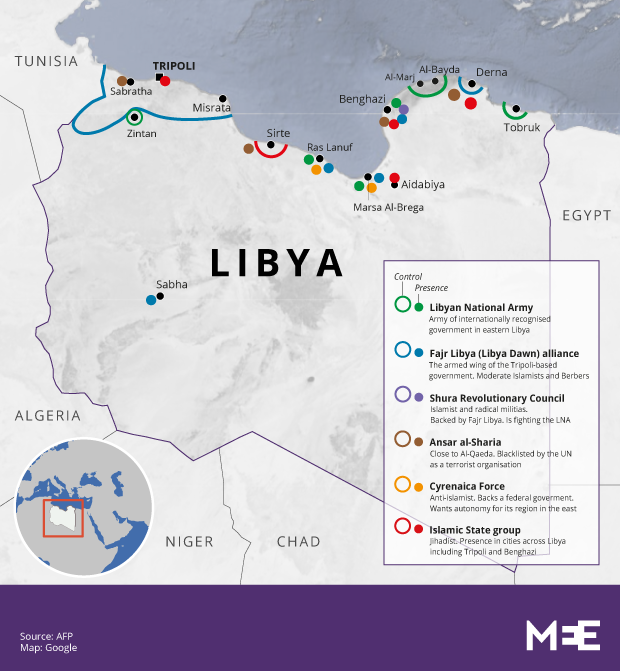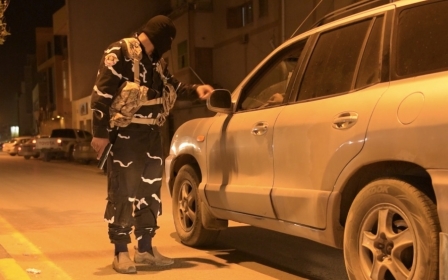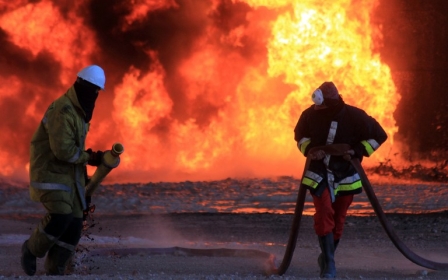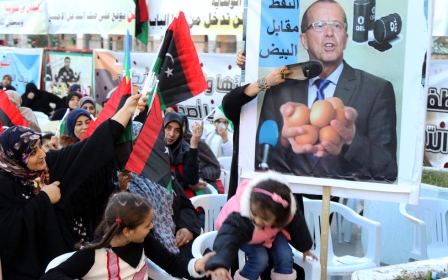US planning military campaign against IS in Libya: Report
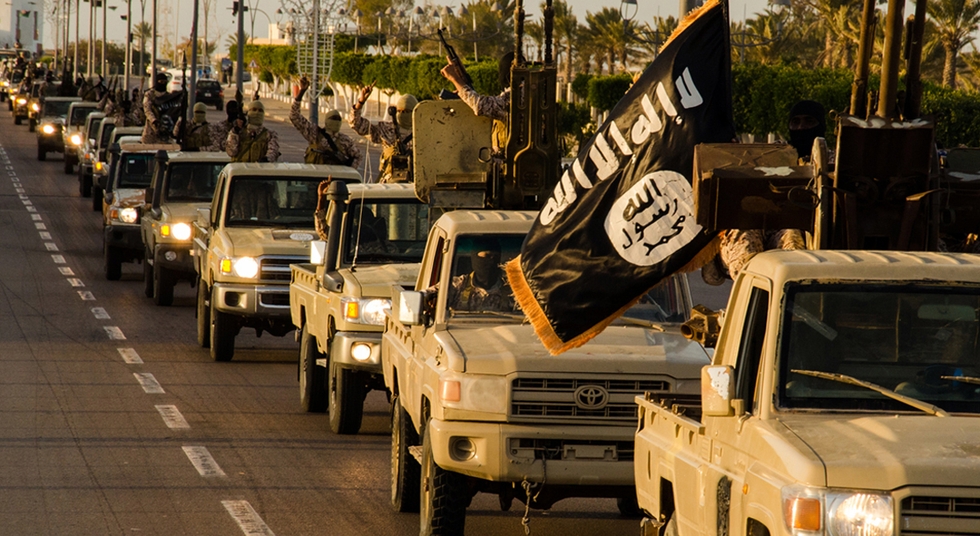
US President Barack Obama has asked key advisers to draw up options for the fight against the Islamic State group, including opening a new front in Libya.
Eighteen months after a US-led coalition began air strikes against IS in Iraq and Syria, multiple administration sources said on Friday that the White House wants to speed up and broaden the effort.
Efforts will deepen to retake Raqqa in Syria, Mosul in Iraq and to check the group's growth in Afghanistan, but there is an increasing focus on Libya.
IS has recently taken control of Sirte, a strategic port near oilfields that could provide a lucrative source of income.
Potential options for the US are said to range from intensified air strikes to participation in a UN-backed ground force that would help take on Libya's estimated 3,000 IS fighters.
Officials caution that Obama has not yet been presented with concrete military plans.
"Action in Libya is needed before Libya becomes a sanctuary for IS, before they become extremely hard to dislodge," said one US defence official. "We don't want a situation like in Iraq or Syria."
The US defence department "stands ready to perform the full spectrum of military operations as required," spokeswoman Michelle Baldanza told the AFP news agency.
"We also continue to work with the international community to mitigate conflict in Libya, promote stability, and strengthen governance."
Until now, US involvement in Libya has been limited to isolated air strikes and the deployment of US special forces, who are building ties with local armed groups and providing intelligence. However, they have not always been welcome.
In November, a US F-16 jet struck the eastern town of Derna, killing Abu Nabil - also known as Wissam Najm Abd Zayd al-Zubaydi - the local IS leader.
On Thursday, Obama convened his National Security Council to discuss current operations and the next steps.
"The president directed his national security team to continue efforts to strengthen governance and support ongoing counterterrorism efforts in Libya and other countries where IS has sought to establish a presence," according to a White House account of the meeting.
Further steps, including ground operations, will depend on Libyans' ability to form a "unity" Government of National Accord, which the UN is still trying to bring together.
"There needs to be a political solution to get a military solution," said another defence official, echoing comments from diplomats.
"We hope that there is the beginning of a political solution so that there is a legitimate government that can invite us to go after ISIL [IS]."
The West wants unity in Libya so it can bomb it - David Hearst
Some security experts say the deteriorating situation on the ground may leave the administration few options but to launch a ground campaign, even if the long-term path is unclear.
"The unfortunate reality is that this is a bad option, but it's the only one," said Patrick Skinner, a former CIA case officer now with The Soufan Group, a consultancy.
IS-linked attacks from Turkey to Indonesia have sharpened concerns about the group's reach and potency, even as it suffers losses in Mesopotamia.
"They cannot let the Islamic State run Libya, they just can't. They are holding really key spots. You can't let the Islamic State have a port, that's insane."
According to Karim Mezran, a Libya expert at the Atlantic Council, any government in Libya is unlikely to survive without foreign support and would have to invite in foreign troops.
"Without an international force of support, there is no way the new government can ever get into Tripoli," he said.
New MEE newsletter: Jerusalem Dispatch
Sign up to get the latest insights and analysis on Israel-Palestine, alongside Turkey Unpacked and other MEE newsletters
Middle East Eye delivers independent and unrivalled coverage and analysis of the Middle East, North Africa and beyond. To learn more about republishing this content and the associated fees, please fill out this form. More about MEE can be found here.


